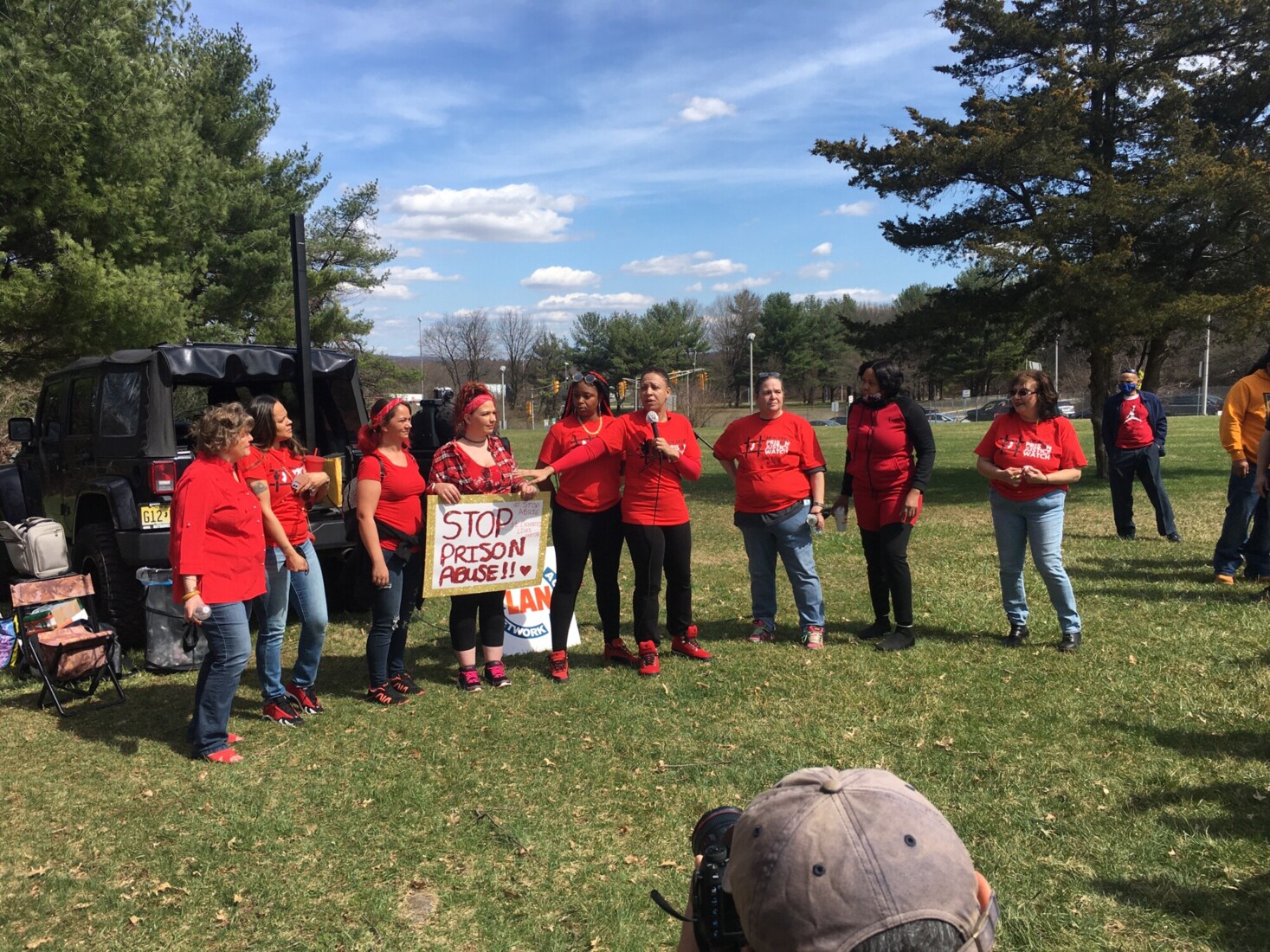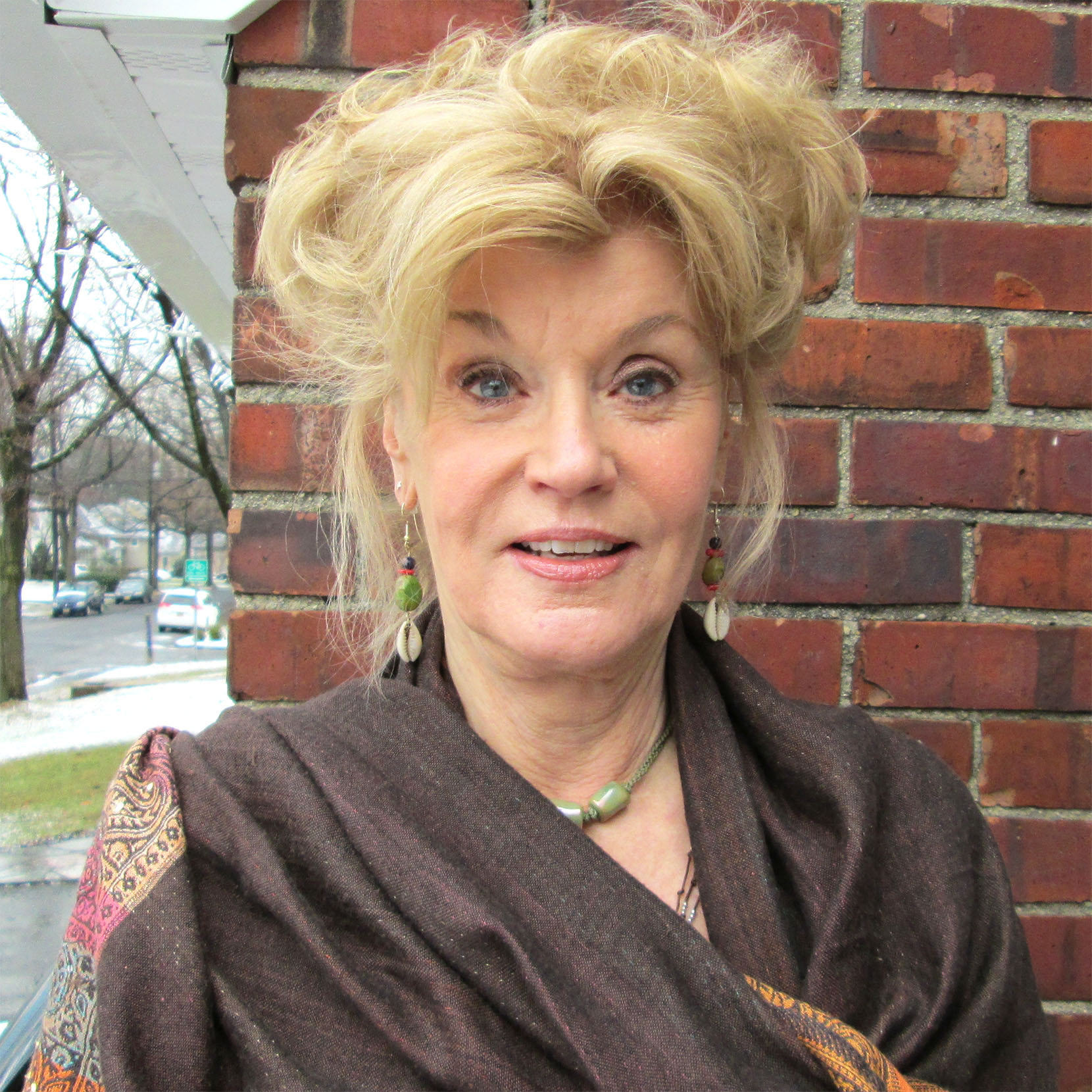
In 2021, families and community members came together to protest conditions at Edna Mahan women's prison in New Jersey. Photo: Bonnie Kerness/AFSC
In 2021, women incarcerated at Edna Mahan Correctional Facility in New Jersey bravely spoke out against brutal beatings by officers. AFSC’s Prison Watch Program helped the women bring their stories to the public, sharing their accounts with the governor, legislators, advocates, and the media.
The courage of these women exposed a long history of abuse at the women’s prison. It also led to improvements in how the state of New Jersey treats incarcerated women. The 14 officers who committed the abuses were indicted. The state reached a consent decree with the U.S. Department of Justice, agreeing to implement policies to protect women from abuse and provide more transparency. The governor also announced that the state would shut down the crumbling Edna Mahan prison and build a new facility with more opportunities for rehabilitation.
Today, AFSC continues to work with women at Edna Mahan and other advocates to ensure the state delivers on these commitments—and protects the rights and dignity of incarcerated women. A year ago, the state created a board of trustees to provide community oversight at Edna Mahan. Board members are all women, including three who are formerly incarcerated as well as advocates from other organizations, including AFSC (myself).
As trustees, we have complete access to the facility. That access has allowed us to inspect conditions at the prison and speak freely with women about their experiences. For decades, AFSC’s Prison Watch project has monitored and worked to end human rights abuses in New Jersey prisons. As part of the board, I have gotten to meet in person many of the women we have corresponded with through letters over the years.
Our community oversight is making a difference in the everyday lives of women at Edna Mahan. We’re ensuring that their concerns and complaints are brought directly to prison officials. Over the past year, our board’s actions have led to:
A review of medical care at Edna Mahan: Multiple women complained to the Board about the poor medical care at the facility, such as a lack of regular mammograms and appropriate treatment for breast cancer. After the board relayed these concerns to the head of the Department of Corrections (DOC), the commissioner ordered an audit of the medical care unit at Edna Mahan—as well as all other state prisons. After the board recommended that the department appoint a member of the Board of Trustees who had medical expertise to better review medical complaints The DOC also chose to replace the head physician at the women’s prison.
Compliance with state law on solitary confinement: In 2019, the state of New Jersey passed a law that strictly limits how long prisons and jails can isolate people—legislation for which AFSC had advocated for years. When the Board visited Edna Mahan, we made it a point to speak with women in the isolated confinement unit to ensure officials were upholding that law. Our monitoring has proven critical. This year, Edna Mahan was the only facility in the state where prison officials have complied with the law. The DOC is now taking steps to ensure other prisons uphold the law.
Continued access to rehabilitative programs: As New Jersey builds a new facility to replace the deteriorating Edna Mahan prison, many women have been transferred to a temporary satellite facility. However rehabilitative and educational programs continue to take place at the Edna Mahan. The board has helped ensure that women had transportation—with reduced strip searches—to take them from the satellite facility so they could continue to access those programs.
These are small, but important steps in protecting the rights of incarcerated women. Ultimately, AFSC is working to create a future without prisons. Today, we must do everything we can to ensure that people in confinement are treated with the respect and human dignity we all deserve.
Having community oversight at Edna Mahan is a key piece of that work. I can see the difference when we walk into a room and greet women at the facility. Their faces light up, they are excited to talk with us, and they know we will support them in making their voices heard.
We hope our efforts will improve prison conditions beyond Edna Mahan—and for all people incarcerated in New Jersey.
